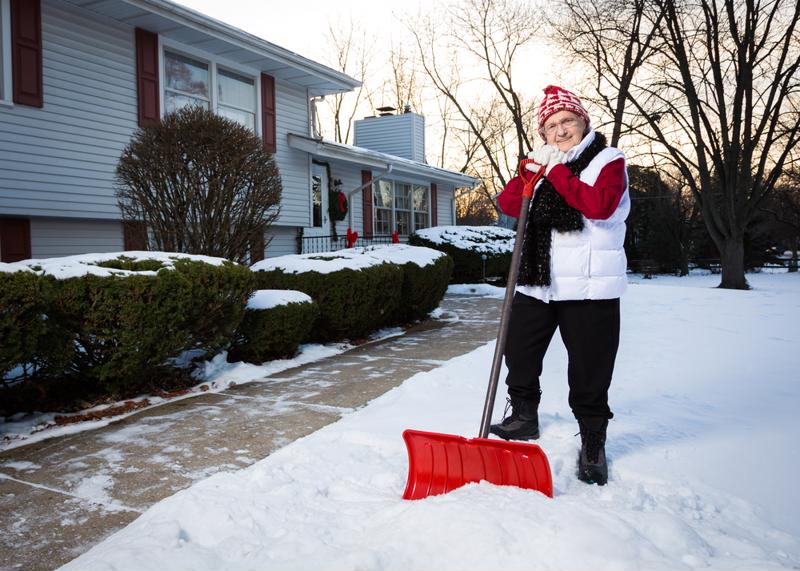
Winter comes with sparkling snow, the holidays, and increased health issues – especially for seniors. It’s a good idea to know what to look for and expect so you can stay healthy this season or keep an eye on the seniors you care about. Here are some ways winter can affect older individuals:
Falling Risks Increase
Seniors who live in climates that receive snow and ice during the winter are more likely to fall. Those who live at home and do their own shoveling or yard work are especially likely to fall. However, even individuals who reside with caregivers and walk with supervision may be at risk. Make sure that area around your home are shoveled and salted to prevent falls and don’t hesitate to ask for assistance with these tasks. If you’d like someone to walk to the car to provide an arm to lean on, that’s OK. Consider using a walker to help you stay balanced while walking outdoors in the winter.
Find Senior Living Near Me
Falling risks also increase indoors during the winter because melted snow on the floor can be slippery. A senior who has been outside and becomes very cold may have reduced mobility and balance and can fall while moving indoors. Always check on seniors when the temperature dips or snow and ice are present. Just calling them can provide insight into how the person is doing and assistance in an emergency.
 Seniors should dress in layers and wear winter accessories to reduce the risk of hypothermia.
Seniors should dress in layers and wear winter accessories to reduce the risk of hypothermia.
The potential for hypothermia Increases
Hypothermia occurs when the body becomes so cold that it starts to shut down. The National Institutes of Health noted that hypothermia is a less obvious danger for vulnerable adults that requires immediate treatment. Older people are at an increased risk of hypothermia because their bodies cannot withstand the cold as long as younger people. Some medications and illnesses can also further heighten this risk.
Seniors naturally create less body heat, which means they are often colder than younger individuals. Signs of hypothermia include slowed reactions and movements, sleepiness, slurred or slow speech, and confusion. Wearing layered winter gear and a hat, mittens, and warm shoes can do wonders in preventing hypothermia. Also, ensure your home temperature is 68 degrees Fahrenheit or higher. Seniors may want to talk to their physicians about any medications or chronic health problems that could increase their risk of hypothermia.
Body Temperature Regulation Becomes Difficult
According to the American Heart Association, seniors with cardiovascular conditions may experience increased side effects from the cold. Because lower temperatures and winds can reduce body heat, blood vessels tend to constrict, making it more difficult for oxygen to reach the entire body. The AHA recommends that seniors wear layered clothing to trap heat and provide insulation. Thin seniors are especially at risk of cold-related cardiovascular issues because they do not have as much fat to provide warmth and keep blood flowing.
 Seniors often find their arthritis flares up in the cold weather.
Seniors often find their arthritis flares up in the cold weather.
Chronic Pain May Increase
It’s common for seniors to have chronic pain like arthritis. When it’s cold outside, many people note their symptoms worsen. This can lead to taking excess pain medications, whether prescribed or over-the-counter. Talk with your doctor if your joints are more painful than usual. Physicians may recommend changing your medication or trying home remedies like Epsom salt baths to relieve the aches.
Sleep Habits Change
During the winter, the sunshine is typically far less than during the rest of the year. This can make anyone feel sluggish and want to sleep more. Getting extra rest isn’t a problem until sleeping becomes amassivee part of the day. Seniors may want to consider setting an alarm to wake up for breakfast and ensure they’re not staying in bed late because of the winter darkness. Keeping a regular schedule can help avoid sundowners syndrome, as can opening the blinds and turning on the lights during the daytime.




